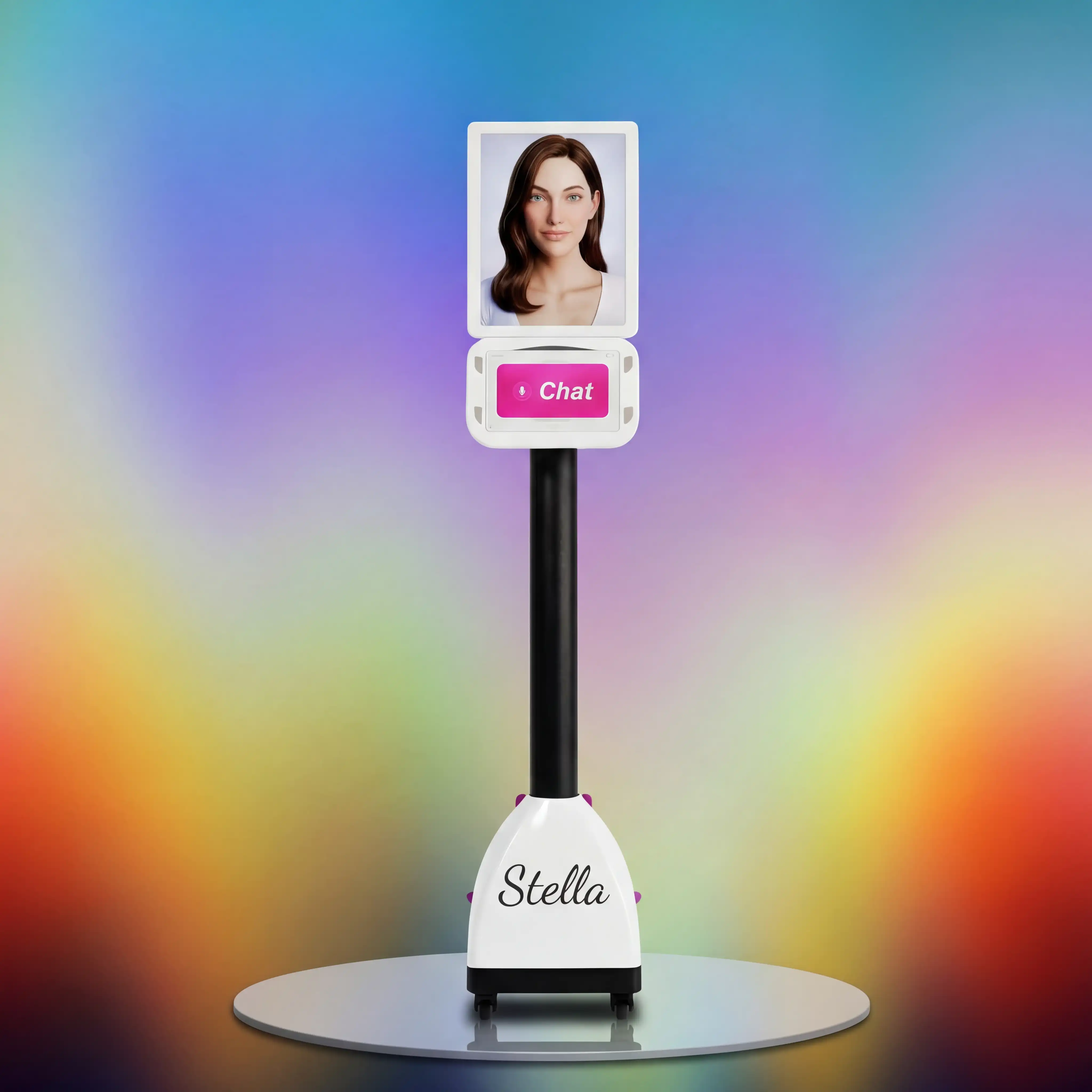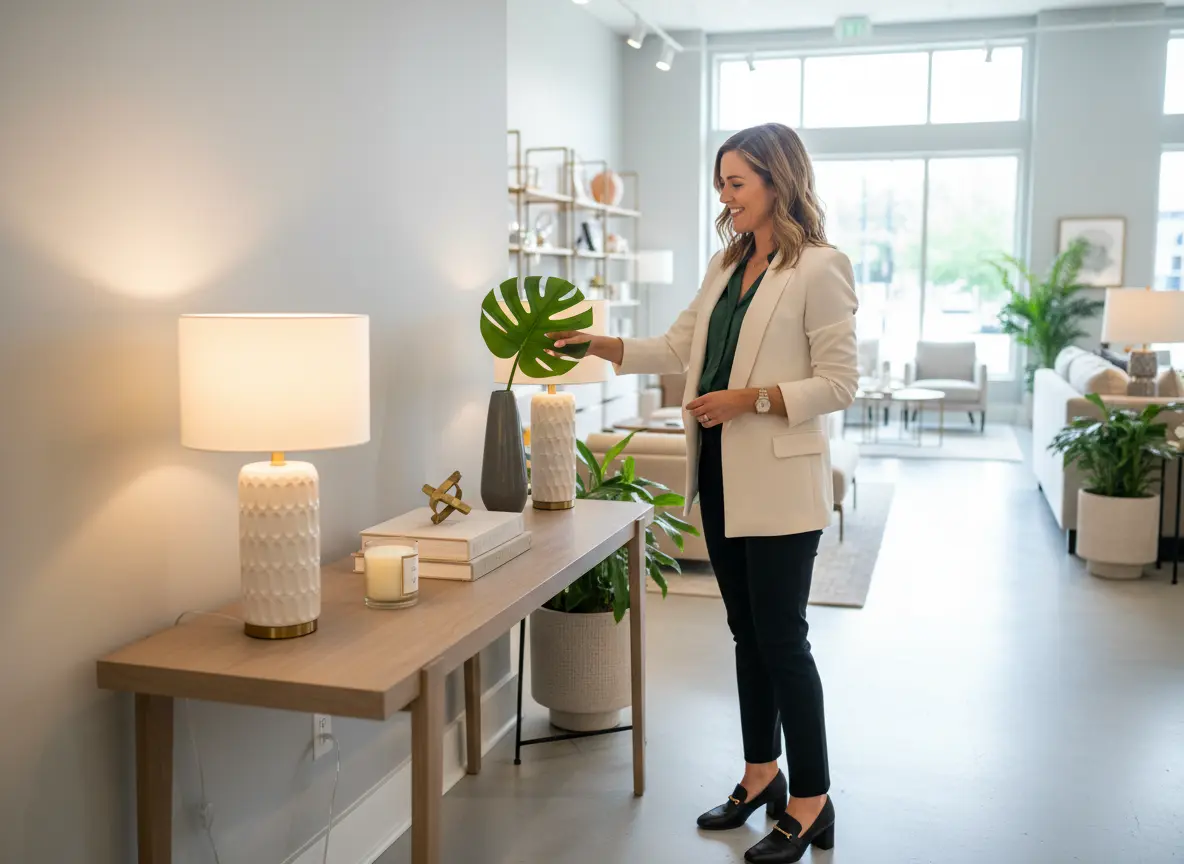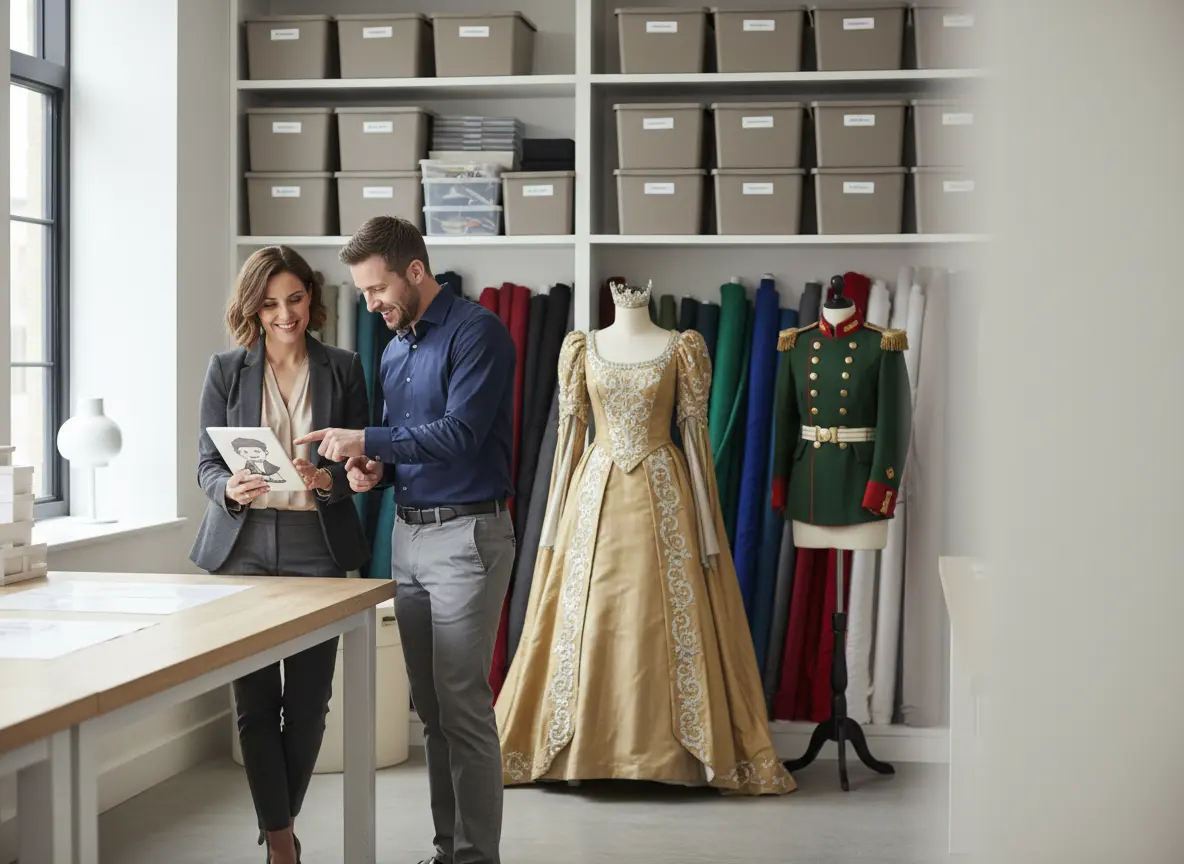Let's Be Honest: Is Your Sales Floor a Team or Just a Collection of People Waiting for 5 PM?
You’ve seen it. The glazed-over look. The slow, deliberate shuffle away from a customer who looks like they might have a question. The classic, “That’s not my department.” If you’ve ever walked onto your own sales floor and felt a sudden, crushing wave of loneliness—like you’re the only one who realizes this whole retail thing is a business and not a book club—then this is for you.
The culprit is a lack of ownership. It’s that invisible plague that turns passionate new hires into clock-watching automatons. And it’s costing you more than just your sanity. A disengaged team leads to missed sales, sloppy merchandising, and a customer experience that screams, “Please shop online.” According to Gallup, a staggering 77% of the global workforce is not engaged. That means roughly 8 out of 10 people on any given team are just... there. Fostering a culture of ownership isn’t some fluffy HR buzzword; it’s the antidote. It’s about creating an environment where your team members don't just work for you, they feel like they’re working with you, taking personal pride in the store's success.
The Anatomy of an "Owner" Mindset
Creating this mindset doesn't involve handing over the keys to the building (though, tempting as it might be on some days). It's about fundamentally shifting how your employees view their role, transforming them from passive task-doers into proactive problem-solvers. It's about rewiring their thinking from "What do I have to do?" to "What can I do to make this better?"
Beyond the Job Description: Empowering Your Team
Do your employees need a manager's sign-off to handle a $5 return? If your team is tethered to a corporate leash so short they can’t breathe, they’ll never take initiative. Empowerment is about trusting the people you hired. Give them the autonomy to make decisions. Establish clear guidelines, of course, but within those boundaries, let them fly. For example, empower any employee to offer a 10% discount to resolve a customer issue on the spot, without a frantic search for a manager. When an employee successfully turns a frustrated shopper into a happy one all by themselves, they don't just solve a problem—they feel a jolt of pride and competence. That feeling is the bedrock of ownership.
Knowledge Isn't Just Power, It's Profit
Why should your team care about hitting a sales goal if they don’t understand what it means for the business (and for them)? Stop hoarding information. Be transparent. Share key metrics that go beyond top-line revenue. Talk about things like:
- Foot Traffic vs. Conversion Rate: "We had 500 people walk in yesterday, but only 50 bought something. What can we do to engage the other 450?" -
- Average Transaction Value (ATV):
- "Our ATV is $45, but if we can get it to $50 by suggesting one more item to each customer, that's an extra $2,500 in sales this week."-
- Product Margins:
- "I know these widgets are a bit harder to sell, but our margin on them is 60%. Selling just five of these is as profitable as selling fifteen of our loss-leaders."
When your team understands the 'why' behind the 'what,' their work gains context and purpose. Suddenly, upselling isn't just a task; it's a direct contribution to the team's shared success.
From "My Task" to "Our Goal"
Individual sales quotas can sometimes create a cutthroat environment where team members are more focused on competing with each other than serving the customer. While individual accountability is important, it should be balanced with collective goals. Frame success as a team sport. Instead of "Jen, you need to sell 10 premium packages," try "Team, our goal is to increase our premium package attachment rate from 15% to 20% this month." This encourages your top performers to mentor others and fosters an environment where everyone is rowing in the same direction. When the team hits the goal, celebrate together. The victory is sweeter, and the sense of shared accomplishment builds a powerful, cohesive unit.
Freeing Up Your All-Stars to Actually... Own It
It's hard for an employee to feel like a business-savvy owner when they spend a third of their day acting as a human FAQ machine. You hired them for their sales acumen, their merchandising eye, and their ability to connect with people, not to be a walking, talking directory. To truly unlock their potential, you need to get the small stuff off their plate.
Automating the Mundane, Amplifying the Human
Think about the sheer volume of repetitive questions your team fields daily: "What time do you close?" "Where are the fitting rooms?" "Is this on sale?" These interruptions, while necessary, pull your staff away from high-value interactions—the ones that build relationships and drive major sales. This is where smart technology can be a game-changer. An in-store AI retail assistant like Stella can be your first line of defense. Positioned near the entrance, she greets every single customer, promotes your latest deals, and answers all those common questions instantly and tirelessly.
By delegating these routine tasks to Stella, you liberate your human team. Suddenly, they have the bandwidth to notice the customer who looks lost, to spend quality time with a shopper trying to make a big purchase decision, or to proactively tidy up a display that's looking a little sad. It's not about replacing your team; it's about elevating their role from transactional to transformational.
Building the Ownership Framework
A culture of ownership doesn’t just magically appear. Like any good merchandising display, it has to be intentionally designed and carefully maintained. It requires a solid framework of recognition, training, and feedback that consistently reinforces the right behaviors.
Recognition That Doesn't Come with a Gift Card
Everyone loves a bonus, but money is a short-term motivator. True ownership is nurtured by genuine, specific recognition. Instead of a generic "good job, team," try calling out specific actions in your daily huddle. "I want to give a huge shout-out to Mark. He noticed we were low on gift boxes and took the initiative to restock them from the backroom before the evening rush. That saved us a lot of headaches. That's what ownership looks like." This kind of public praise does two things: it makes Mark feel seen and valued, and it clearly demonstrates the exact behavior you want to see from everyone else. It costs nothing, but its ROI is immense.
Training for Initiative, Not Just for Transactions
Does your training program stop after teaching someone how to use the POS and where the fire extinguisher is? If so, you're training for compliance, not for ownership. Level up your training by focusing on problem-solving and critical thinking. Run regular role-playing sessions that go beyond simple transactions. Present them with tricky scenarios:
- A tourist comes in looking for a product you don't carry. What do you do?
- A regular customer is unhappy with a recent policy change. How do you handle it?
- Two customers need help at the same time. How do you prioritize?
Don't just look for the "right" answer. Praise creative solutions and teach them the principles behind good decision-making. You're not just training them to follow a script; you're training them to think like you would.
The Feedback Loop: Making Every Voice Matter
The fastest way to kill an ownership mentality is to ignore your employees' ideas. They are on the front lines every single day; they see the inefficiencies, hear the customer feedback, and have ideas you've never even considered. Create a simple, consistent way for them to share their insights. It could be a suggestion box, a dedicated Slack channel, or a "bright ideas" segment in your weekly meeting. The most critical part? You have to close the loop. Acknowledge every single idea. If you implement it, give public credit. If you don't, briefly and respectfully explain why. When your team sees that their voice leads to tangible change, they become deeply invested in the store's continuous improvement.
A Quick Reminder About Stella
While you’re busy cultivating this amazing culture of ownership, remember that powerful tools can accelerate your progress. An AI retail assistant like Stella acts as your most reliable team member, ensuring every customer is greeted and every promotion is mentioned, freeing up your incredible human staff to focus on what they do best.
Your Store, Their Mission
Creating a culture of ownership is a journey, not a destination. It’s a continuous effort of empowering, trusting, training, and recognizing your team. It’s the difference between a staff that works for a paycheck and a team that works for a shared purpose. The result isn't just a better bottom line; it's a more dynamic, resilient, and, frankly, more enjoyable place to work for everyone—including you.
So, here’s your homework. Pick one thing from this post. Just one. Whether it's sharing one new business metric with your team, empowering them to solve one type of customer problem, or asking for their ideas on one specific challenge. Start this week. Stop being the only one who cares. It's time to build a team that treats your store like it's their own. (Well, almost like it's their own. Let's not get carried away.)





















